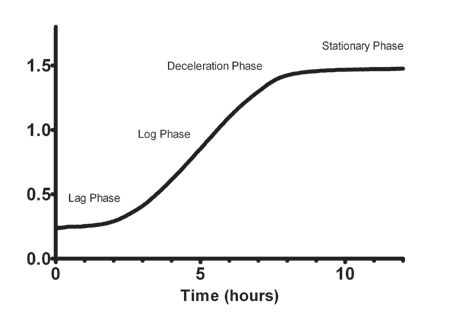I know that it sounds counterintuitive, but one should not allow a starter to ferment to completion before pitching. One's goal when making a starter is different than one's goal when making a batch of beer. There's nothing to be gained by allowing a starter to continue to ferment after maximum cell density has been reached. At that point, it's all downhill with respect to yeast health. Maximum cell density for a 1L starter (~200 billion cells) is usually hit 12 to 18 hours after pitching a White Labs vial. If one is pitching a relatively fresh tube, many yeast strains reach maximum cell density within six hours of pitching because the cells only need to divide (cellular mitosis) two or three times at most.
As they say, a picture is worth a thousand words.

Ideally, one wants to pitch just as the curve starts to flatten out during the deceleration phase. While it may look like one is growing more cells beyond that point, all reproduction is for replacement only.
The only cell count that matters when propagating yeast is the viable cell count. Additionally, the ergosterol and unsaturated fatty acid (UFA) reserves that are synthesized at the beginning of fermentation are shared by the mother cells with all of their daughter cells after the dissolved oxygen has been consumed. Allowing a starter to ferment to completion results in one pitching yeast cells with depleted ergosterol and UFA reserves, resulting in higher dissolved oxygen demand upon pitching. Ergosterol and UFAs make yeast cell membranes more pliable, which, in turn, allows for the passage of nutrients and waste products.